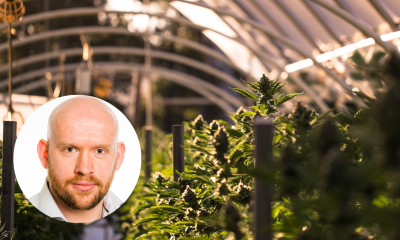Uganda's Constitutional Court annulled the Narcotic Drugs and Psychotropic Substances Control Act that had been in force in the country since 2015, following successful action by activists. However, and despite the court's decision, handed down last week, the Ugandan authorities say they will continue to ensure the application of the old 1993 law to combat substance-related crimes.
Uganda is currently the scene of a ridiculous moment when it comes to drug control. The Law for the Control of Narcotic Drugs and Psychotropic Substances passed in 2015 by the Ugandan government was annulled by the Constitutional Court last week. The annulment of the law by the court, which was already contested by activists, was based on the lack of a quorum on the part of Parliament, during its enactment in 2012, contrary to Articles 88 and 89 of the Constitution and paragraph 23 of Parliament's Rules of Procedure.
After mixed reactions to the issue, the police announced that all territorial commanders were instructed to maintain or intensify inspection actions against offenders and to increase efforts to dissuade drug use in the country, in addition to crimes motivated by these.
Representatives of Uganda's Attorney General announced that the state must appeal the decision: Jackson Kafuzi, the Deputy Attorney General, told the The Observer that the state would appeal the decision of the Constitutional Court. Kiryowa Kiwanuka, the attorney general, told the same publication that his offices will study the decision in order to appeal. The Observer further reported that, without the attorney general identifying specific laws, he stated that narcotics are still illegal in Uganda and individuals will be prosecuted under other laws in the country.
Parliament fails to submit 'attendance sheet' to court
According to the verdict presented in court, the judges agreed with the objections of the “mairungi” farmers, due to the fact that it was not possible, from the parliamentary records, to confirm whether the necessary deputies would be present to approve the diploma. At issue would be the lack of clarity of the minutes of the debates, called Hansard. “From the review of the Hansards of 18, 19 and 20 2014, I conclude that the petitioner has a valid complaint. Before a vote could legally be taken by Parliament, Rule 23(3) of the 2012 Rules of Procedure of Parliament required the President to verify that Members present in the House formed a quorum for the vote,” said Judge Mutangula Kibeedi. The panel of judges concluded that it is "impossible for this court to rely on Hansard to make its own inference that the numbers involved in voting reached the minimum necessary to constitute a quorum."
A five-judge panel, led by Deputy Chief Justice Richard Buteera, Stephen Musota, who has since been elevated to the Supreme Court, Muzamiru Mutangula Kibeedi, Irene Mulyagonja and Monica Mugyenyi, unanimously overturned the law and ordered the government to pay the costs incurred by farmers in this petition.
The ministers added that the speaker of parliament should accurately reflect the number of parliamentarians who are present in the Chamber at the relevant time, how many of them are entitled to vote and how many are not entitled to vote (former members).
The decision comes from a petition to withdraw the Khat from the Narcotics List
In 2017, Wakiso Miraa Growers and Dealers Association Limited filed a petition where they challenged the country's Drug Law. This specifically prohibited and criminalized the cultivation, possession, consumption, sale, distribution, transport and export of Catha edulis (khat) commonly known as mairungi.
The legal team engaged in this legal battle was led by Isaac Ssemakadde and the petitioners argued that the ban on khat it was not supported by any scientific evidence, but it had a disruptive effect on the livelihood, property, economic, cultural and social rights of the petitioners, who are farmers, vendors and consumers.
The petitioners presented to the court evidence of the unconstitutionality of the parliament to prohibit the mairungi, as well as asking for the disqualification of the khat as a prohibited plant and psychotropic substance under the Narcotic Drugs Act in question.
The dependency on this once banned crop was explained by Vincent Kizito, chairman of Wakiso Miraa Growers and Dealers Association Limited, who says the crop should be treated as a delicacy because it is a source of family income and it suppresses the financial needs of families, allowing , for example, conditions for providing education to children.










































